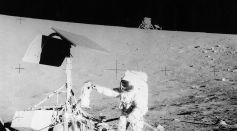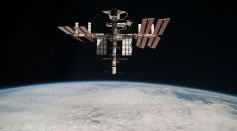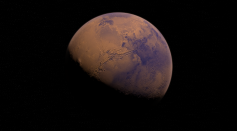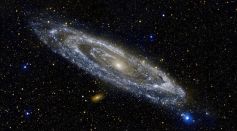Tags: Earth

Study on Aluminum Alloy Could Benefit Crewed Space Missions
Possible Life on Ancient Mars Lived Underneath the Surface
What Would Happen to Earth If All The Ice Will Melt?
China’s Chang’e 5 Spacecraft Enters Lunar Orbit

Watch Out for the Penumbral Eclipse This Monday: Here's How
Large Sunspot Arrives in Time for Thanksgiving

‘Dim the Sun’ to Save the Earth. Would It Work?
Dinosaurs Could Have Flourished Today Were It Not for Asteroids, Study Claims
This Invisible Ecosystem Helps Fight Climate Change

The ISS to Get Bigger Soon, Russian Cosmonauts Prepare for It

Chinese Scientists Discover Material in Rock That May Exhibit ‘Origin of Life’

This 1966 Rocket Booster from Surveyor 2 Pays A Brief Visit to Earth Orbit Again
Kepler Space Telescope Reveals About 300 Million Habitable Planets Possibly Exist in the Milky Way

Space Telescope Ariel: Europe Moves Ahead With Exoplanet Mission

Mars Had More Water Before There Was Life On Earth, Ancient Meteorite Shows

Five Stellar Yet Extreme Facts About Space
Experts Found Earth-Sized Rogue Planet Floating in Milky Way
Penumbral Eclipse, Leonid Meteor Shower, and More: November Sky Events To Watch Out For
NASA's OSIRIS-REx Successfully Touches Asteroid Bennu's Surface
Giant Red Star Betelgeuse Is Smaller, Closer to Earth Than We Thought
Most Popular

The Strongest Tornadoes Ever Recorded: Scientific Breakdown of Extreme Tornado Events

How Solar Activity Shapes Our Planet: What the Next Solar Maximum Means for Earth

Can Scientists Predict Earthquakes? The Latest Advances in Seismic Forecasting Explained

How Space Affects the Human Body: Key Health Challenges Impacting the Astronauts





